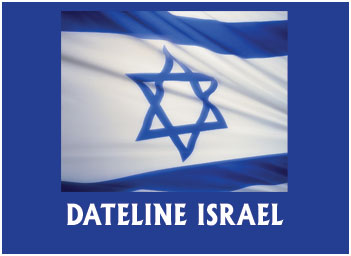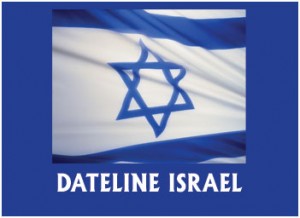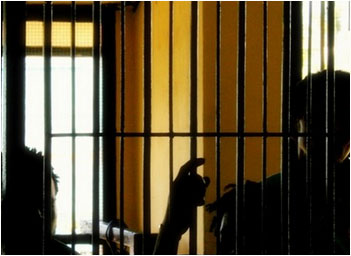A few days before the Israel visit of President Obama, I commented to colleagues that besides the usual demonstrations, rhetoric and theories, the trip may turn out to be really boring. But, despite a couple of rockets fired into Israel from Gaza and a sand storm, the overall trip seemed to be quite an achievement for the US President.
Fortunately, Israeli Prime Minister Benjamin Netanyahu had signed an agreement with coalition partners and Israel had a government a few days prior to the American entourage arriving. There were no controversial visits to the Temple Mount area, including the Western Wall, and the US President left before the Passover Holiday began.
In addition, the Israeli representatives behaved cordial among themselves and kept the malicious in-fighting and leaks to a minimum. You can read about the Israeli leaks last year that supposedly prompted American anxiety of an Israeli preempt strike on Iran or Syria near the 2013 Passover holiday in my March 12th, 2013 article.
Meanwhile, from the moment President Obama stepped off Air Force One he was treated as a long lost brother and a rock star. Throughout the visit Obama looked Presidential and behaved down-to-earth. The arrogant demeanor that sometimes plagues his perception was absent. Wisely, the US President returned to his original message of hope and synergy that enthusiastically got him elected the first term as he challenged the Israeli public and youth to help initiate change. This behavior reversal may be attributed to a more experienced Obama, both Hillary and Bill Clinton, and John Kerry as Obama acted less idealistic, yet diplomatic and flexible. Good travel preparation, meetings with US Jewish leaders and a candid, personalized pre-travel news interview on Israeli TV may have also been important aspects.
The confrontational atmosphere between President Obama and Prime Minister Netanyahu was publicly nonexistent. Instead the two leaders appeared as solid partners. They kept their message fairly consistent and coordinated with each other, and honestly seemed to enjoy themselves.
Yes, the US President’s messages were accepted (or not accepted) as usual, divided by party lines. And, a few, maybe many Israelis, are still not convinced a US guarantee for safety is reliable. This is because of the immediate and instantaneous dangers that threaten Israeli daily lives by enemy militias, terrorists and armies that are bio/chemical and (potentially) nuclear armed, and the speed and coordination of attacks by wireless, Internet, social networking, and weapon systems.
In relation to the so-called peace talks, in my opinion the US visit did not address what I believe are vital factors. First, is protecting Israel after Fatah Party Palestinian Arab President Mahmoud Abbas ceases to exist politically. Second, rarely anyone in Gaza would dare demonstrate or try to initiate change against the Hamas (Party). That is unless they want to be brutally tortured and then shot dead. Those are the stark realities that plague Israel in signing a peace treaty with unstable and inconsistent so-called Palestinian governments that are actually two separate Arab Palestinian entities (and Fatah and Hamas are bitter enemies). The rockets fired into Israel during Obama’s visit are a sober reminder of this ongoing paradox.
Additionally, I want to comment on the realism of starting a company in Israel and the Middle East. It is common practice in the Middle East to pay or provide gifts (some may refer to as payoffs) for necessary company start-up elements that might include agreements, contacts, deals, protection and general essentials. Moreover, a middleman will frequently be paid by the seller and the buyer on the same transaction. Furthermore, anyone or a company that is non-local will usually pay more, sometimes double or triple the rate (but this is practiced nearly worldwide).
Nevertheless, many would say President Obama’s trip was a personal, diplomatic and military success. This coupled with a good PR and photo (video) travel campaign including a charming moment with the US Ambassador to Israel’s family during departure.
Therefore, Obama is credited for restarting the peace talks, the release of funds for the Arab Palestinian Authority, a possible Iranian nuclear freeze, Israel’s apology to Turkey paving the way for allied coordination for strikes against Syria and Iran if necessary, and Israeli/Turkish gas, oil and military contracts. Obama is as well rumored to have received assurances from Israel against preempt strikes, or at the least notification if strikes occur, despite recent intelligence suggesting Iran might have already crossed the ‘red line’. The leaders may have also agreed to a June 2013 date to re-evaluate Middle East security action. That is unless something dramatic happens like fundamental deterioration in the Syrian and Iranian (or Gaza, Egyptian and Jordanian) status-quo.
Although, the entire American Middle East diplomatic coexistence and peace drive may be in jeopardy or sidelined (maybe even before this article is published) due to Israel/Turkey agreement friction, and the direct war threat to US personnel and US interests from North Korea, which is (purportedly) exactly what Iran planned with their North Korean nuclear partner.
Read more columns by the writer
Don Davis has over 20 years experience in analytic research particularly regarding Israeli, Middle Eastern culture, behavior and historical patterns. Don is based in Israel, from where he monitors and evaluates worldwide information on finance, technologies, industries, and the military/political environment for a US consulting company.




















